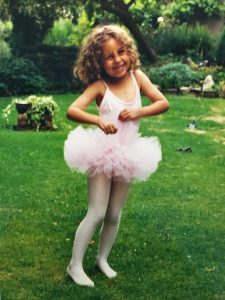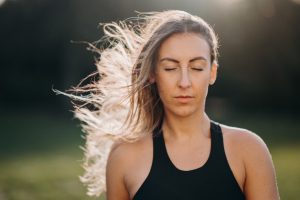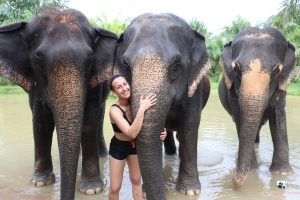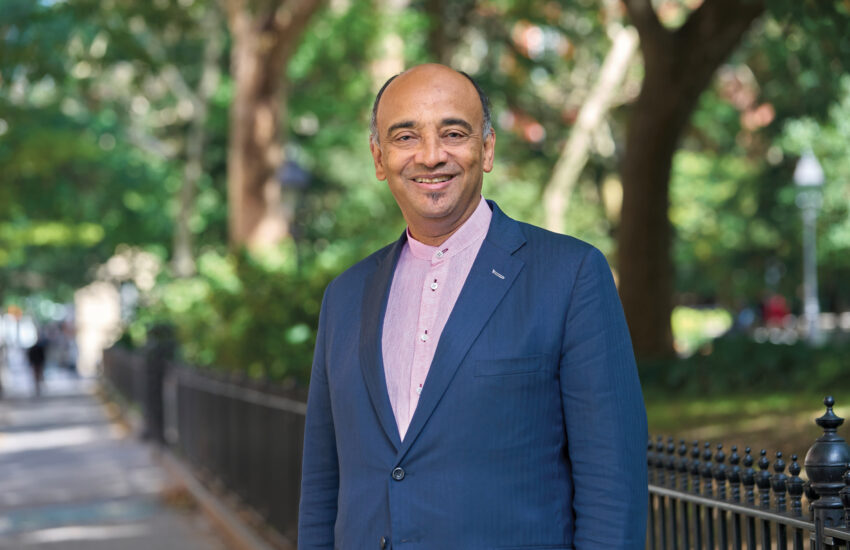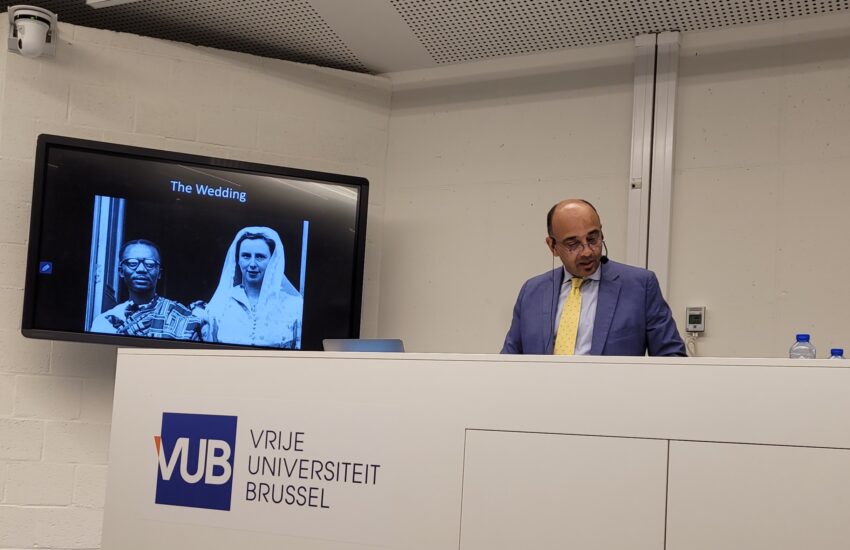In Liminal Space Part 6
Written by Nina Camara
In Liminal Space is a series of interviews highlighting the experiences of people who have decided to leave an environment which did not reflect their story, for a liminal space ‘between the known and the unknown’, in order to put their past behind them and create a new beginning somewhere else.
After early childhood in a multicultural environment, Joely and her family relocated to a space which was on the opposite side of the spectrum. Adapting to this new experience brought its challenges but it also developed her sense of agency and determination, which enabled her to grow and transform her life in different ways.
Pt 1: Life Back Home
Growing up you lived in different parts of England. What were they like in terms of cultural and ethnic make-up?
They were very different – I lived in London until I was about seven or eight years old and it was in the North, so it was incredibly diverse. I had friends from all different cultural backgrounds, ethnicities and races. I had beautiful, abundant friendships with lots of different people. That was just normal. You know, whatever you see growing up you just deem to be normal so I never knew it to be anything but what it was.
And then, moving to Devon in the English countryside was a little bit of a shock because it was completely different. Going from a multicultural North London to a very small English countryside town that is a complete polar opposite to what you know was very strange. Upon reflection, I felt quite isolated for a long time because I didn’t really have the same friendships that I had before.
In my first year of school in Devon when I was in the third grade it was about my hair. I didn’t have afro hair but I remember it was incredibly curly. Just me having curly hair led to many comments and I thought that was really strange because it was never something that anyone particularly picked up on before. But it never felt like a ‘bad thing’, it was just an observation.
I think I was quite resilient as a child. Nothing ever felt kind of negative or traumatic or anything like that. I was very accepting of my environment, I made friends very easily and I was a very open and bubbly child. So, whilst I recognised there was a difference, it never came across as a negative. It was just an observation that it was different.
What was navigating these spaces like for you and your family?
I can imagine that, for my parents, it was probably very different than for me, just from what I witnessed. My dad was the only person of colour in the town we lived in. I can imagine that, from his perspective, it was probably quite an intense experience. Going from London to the English countryside was probably a big transition for him.
I could definitely sense a change in their energy when we moved. But I have a lot of gratitude for it because I think that, from an environmental perspective, the countryside is such a beautiful place to grow up as a child because you have a lot more freedom. So, I think no matter where you are there are ‘good things’ and ‘bad things’ to take from it.
As a child I was very much looking at the positive and absorbing the positive. I was less aware of the negative side of things that came up as I was older and I reflected back. But, at the time, because I was so open and bubbly, it felt like it was quite easy. I made friends quite quickly. It wasn’t until I moved to secondary school that things started to change a bit.
How did this experience influence you as a person?
I think it’s really helped me to build a lot of resilience, and have a lot of acceptance for people as a whole, regardless of where they come from or what they look like.
I am incredibly grateful for the early experience in London that allowed me to be exposed to so many types of people, cultures and races. I think it probably would be different had I lived in the countryside my whole life. I think it’s really important, as a mixed woman of colour, to have that awareness, not just of myself but other people’s experiences.
I was very empathetic as a child and really engaged in how people were feeling and very kind of dialled in to the world. I felt like I was very connected. Also, I almost felt like I grew up quite early and was the adult of the household a lot of the time. Whilst I was very childlike and playful, I always had a sense of protection towards my friends and my family. I had this big protective side of me. I think that, energetically, I was quite mature for the age that I was.
Pt 2: Leaving Home
When did you first decide to ‘officially’ leave?
When I was 19, I moved to Liverpool to attend a performing arts academy. So, that was the official kind of ‘get out’. I was there for a couple of years and then I went back for a while. I was in a relationship at the time and I didn’t quite have the resources within me to leave fully.
I definitely had a lot of attachment to the ease of living life in the country. It didn’t provide me with very many challenges, it was kind of calm and predictable. I definitely was in a comfort zone for a very long time.
Then, I just got to the point when I got sick of what was comfortable and had this drive. I guess the excited child came back up again. It was kind of a re-finding of that inner child who wanted more excitement, challenge and play. When I was 24 I moved to Australia and that
was the big turning point. I didn’t just move within the country, I moved to the other side of the world. So, I guess, you cannot move any further than that.
You are an avid traveller. Which place you lived in would you describe as your liminal space and why?
I think probably Australia, when I went there for the first time. It was a phase when I really spent time on my own. I was able to fully plan my life on my own terms, live on my own terms, really practice making my own decisions, learning from them and seeing what happens without having an influence from a partner, my family or friends.
When I moved there, I didn’t know anyone so it was a really powerful time when I was just chucked into the deep end. I really loved the challenge it brought and that kind of rush of not knowing what came next. Having that unpredictability is definitely something that I really like in life, not knowing what’s next is really exciting to me. Also, it felt as a really powerful time to begin connecting to the version of me that I am today: someone who is very free and open and follows things that feel exciting.
Pt 3: Self-perception and Growth
How has your experience in these very different spaces influenced your self-perception?
I have always been very aware of myself, if anything, a little bit too aware. From quite a young age to my mid-twenties I was quite anxious. I was hyper-vigilant and very aware of myself and my body. I had a very distrusting relationship with myself. There’s a lot of time in my teenage-hood or early twenties that I just kind of don’t remember, whether I subconsciously deleted memories or it was a conscious thing. Travelling really helped me to build more trust with myself.
The notion of self-perception is something that I’ve only really noticed and spent some time acknowledging in recent years and it ties in a lot with the work that I do now. I started doing deep inner work on myself and realised that a lot of my life was lived quite on the surface.
I wasn’t really able to express my emotions in front of people.
I think because I was an only child, I spent a lot of time on my own, growing up. Particularly, between the ages of 11 and 16 because I wasn’t at school and I was educated at home that I was spending a lot of time on my own. Whilst that really built a deep sense of motivation – I was my own self-motivator – I had a quite big disconnect from people.
For a lot of my life I felt safer on my own, expressing myself on my own, sharing my emotions with myself and I had this really deep relationship with me and my own self but I was quite disconnected from other people. I found it very hard to share vulnerability with people. That was definitely a big theme for most of my life.
You have also moved on through different spaces career-wise. Could you talk about how your heritage influenced that journey?
I don’t think, consciously, that my heritage has influenced it hugely. I grew up dancing, singing and acting within the performing arts space. When I went to the school in Liverpool that was the first time I noticed that I had a difference – certain features were always mentioned: the curly hair, different body shape, my skin tone depending on the time of the year…things like this.
In the dancing industry at the time – I’m glad it’s not still like this but at the time – there was a lot of … I really don’t like to use the word fetishization… but it was very much this desire to have a more multicultural look. It was a time when J Lo and Jessica Alba were around and more Latino and mixed race women were coming into the limelight. It was becoming trendy.
So, having that mixed race appeal or look was cool and I definitely used that to my advantage quite a few times. It was more me who was doing the fetishization more than anyone else because I was so anxious – so it was internal. Having people recognise me from an appearance perspective kind of gave me that sense of having a place in the world. It was a lot of external “you look this way and you’re accepted because you look different”, “you’re cool and hireable in the dance space”.
It gave me a sense of identity but obviously, as time went on, it all became exhausting because my sense of space and self was all based on how I looked. That was nothing to do with who I really was inside, that was never anything I was connected to. And I became very disassociated with my sense of self because it was all based on how I looked.
I would go to dance auditions and be surrounded by beautiful, tall, blue-eyed girls. Very rarely would there be any girls who looked like me. It was all so normal so at the time I never identified it as a problem because I was so disconnected. There was never a point when I went “I don’t like this” or “this feels weird”. It was all very subconscious and all very suppressed.
When I left the dance industry and moved on to the fitness industry it was a different ball game again because I was a female in a very male-dominated space. So, it was a similar energy but with different parts and different people involved.
In hindsight, how did the awareness of your mixed race heritage change your personal perspective?
As I started to mature, I started to realise that I had this way of getting on with different groups of people really well. Not necessarily blending in but choosing to show up as myself, engage and use my openness and bubbliness as a positive and not something to hide behind. I think it’s because I am mixed race, though at the first sight you probably wouldn’t know.
Even that in itself has brought up a lot of stuff. For instance, there has been a lot of rejection from various cultures that I am genetically a part of because I don’t look like I am a part of something. Having had conversation with other mixed race women, that is something that is really prominent, being part of lots of different groups but because you don’t look like them or you’re not really from them in an energetic perspective there’s that rejection. So, it’s about “where do I fit in”.
I think I’m really lucky in a sense that I acknowledged it and had that internal strength to create my own space. I’ve always been really proud of the heritage and the cultures that I get to be a part of and from. It’s something I’ve always been really open about and excited to share and it’s never felt deeply traumatic.
And I feel a lot of trauma, though it is a very strong word and I only use it when it feels appropriate, on my dad’s side of the family. I just think energetically I picked up on a lot of his internal stuff and energy. So, growing up, in my early 20s and even now I feel fairly a sense of responsibility, going back to that protection.
I think this is, being mixed race, having that sense of safety and security and resiliency is really important. That has definitely helped me in the work that I do, having that body awareness of “ok does my body feel safe right now?”.
Also, upon reflection, when I was at school, my textbooks we all obviously white-oriented. There’s never been anything I noticed as a problem, again, it was an observation. I feel grateful that I have never been in a space where I felt really traumatised, deeply upset or deeply affected. I think it’s all been light enough that I’ve been able to be aware of it when it’s happened, processed it there and then and then carry on with my life. It’s never been anything that really stuck with me.
How did you translate it to your growth as a professional?
Part of me wants to protect people from something and can definitely show up when individuals feel they are excluded. I want to go in and protect, create a safe space for them. It is really helping people to create a space within themselves where they feel they are a part of something, whether it is in my coaching space or at my fitness class, but, most importantly, within themselves.
Being a coach and a woman holding space for women, I think storytelling is so powerful. Being able to be in a space with someone where you feel like you’re understood and have that ‘me too’ moment is really powerful. Me being able to openly share my stories in a space like this, a story about my health issue or anxiety…
There is a sense of openness I have always had. Another thing is being able to listen which is, I think, a human trait that is not encouraged enough. We are encouraged to speak and be open and be vulnerable but not to listen to others and to practice listening.
I think I am a very good listener. When someone is talking to me, I am really engaged in what they are saying. Not just on a word-to-word basis but I listen from a space of wanting to understand and giving them a space and a time to feel understood.
Being a person holding space for people whilst they are healing is very important because at the root of many problems, challenges, diseases and imbalances in our modern-day society is the feeling of being unseen, unheard, not having a space in the world or a community to connect with.
I feel really grateful that I’ve lived the life that enabled me to do that.

